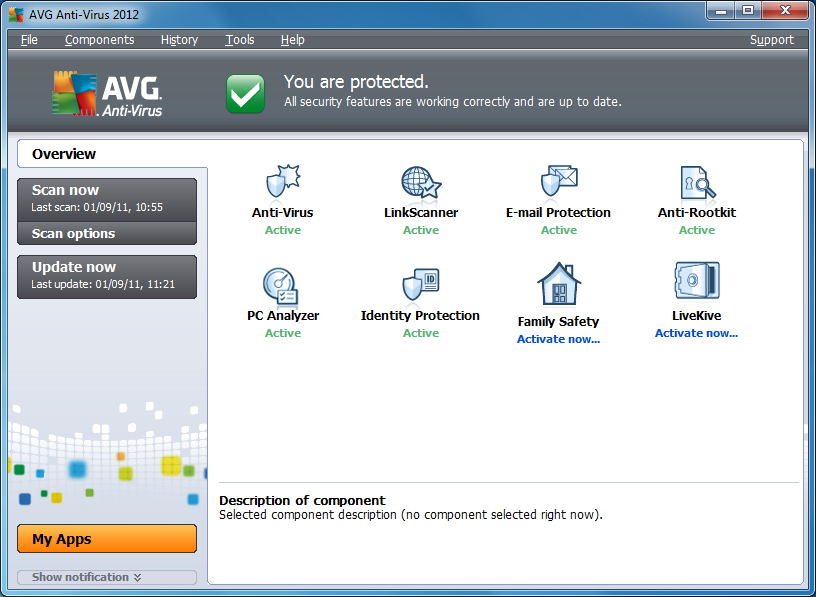In 2023, more people worldwide will use the internet than ever before. The number of people around the world who are regular internet users, on social media or just online shopping, is growing at a fast rate. The internet can be an amazing tool for connecting with other people around the world, finding great e-commerce deals, entertainment and much more. However, unfortunately some people use the internet to scam other people. Cybercriminals can use a multitude of tactics to scam you out of your precious personal information and your money. Looking after your money is important, especially during the cost of living crisis which has hit many particularly hard this year. Cybercriminals can scam you via malware, cryptocurrency scams, and much more. It’s important to stay vigilant and protect you and your family against these cyber scammers, so you don’t lose your personal information and money. Here are all the best ways that you can avoid 2023’s worst internet scams.
What Are Online Scams?
Internet scams have been around pretty much since the internet started, but they evolved into a massive problem during the 1990s. Since then, cyber criminals have gotten more sophisticated, more clever, and more ambitious. Cyber scams are always evolving, and they are getting harder to spot. Cybercriminals may try to attack you via your personal or work email account, social media, dating apps, and much more. Cyber scams are very serious – you risk losing a significant amount of money, or even worse, your identity. However, knowing about the most common types of scams will allow you to protect yourself in the future, as you can learn to tell scams when you see them, and the steps you can take to stop the scam. Keeping one step ahead of the scammers is one of the best ways to protect yourself.
Phishing Scams
Although phishing scams have been around on the internet for a very long time, they show no signs of slowing down in 2023. In 2020, phishing cost victims over 54 million dollars. Knowing how this online scam works will allow you to protect yourself. Phishing refers to scam emails that pretend to be from a legitimate source, such as a bank or online store. The email will contain a bad link to either a malware download or dodgy website which can steal your identity or financial information. The phishing attempt will often use urgent language, for example, saying that your account has been compromised and you need to put your information in to rectify this. There are many ways to spot phishing attempts however- a legitimate organisation will never try to pressure you into handing out your information, so you should be careful around language like this. Look at the indicators of legitimacy on the email – are there misspellings or poor grammar? Does the logo look slightly wrong? One way to avoid phishing scams is to contact the organisation directly through their website – here, you will be able to find out whether the email you received is legitimate or not.
Ransomwar
Ransomware will be one of the biggest buzzwords in 2023 cyber security. Relatively new in terms of cyber scamming, it has only become more sophisticated this year. Many businesses and companies have fallen victim to this form of cyber scam. Ransomware is dodgy malware which is downloaded accidentally (perhaps even as part of a phishing attempt.) The malware will encrypt or steal your precious data, and attempt to extort money from you in order for you to get it back. The rise of ransomware is predicted to cause losses of 265 billion dollars by 2031. However, there are many ways you can mitigate the losses from ransomware. Make sure you keep your antivirus software up to date to protect you when downloading documents, and always backup your data, so if it gets encrypted you can still access it.
Social Media Scams
Unfortunately, people use social media as a way to take money and information from other users. The goal will usually be to get you to click a bad link which will download malware onto your device. They will often post aspirational things such as travel inspiration or popular product reviews, often with links to discounted goods or travel. To avoid this, make sure you avoid links telling you to claim a prize or offering very low prices on popular goods.
Travel Scams
Online scammers have conned prospective travellers out of hundreds of millions of dollars since 2020. It is one of the most popular scams tricking people right now, as more people are booking their holidays online since the pandemic. Typically, the scammer will send you an email pretending to be a travel insurance agent. The fake email will look very convincing, and will convince you to protect the holiday you just bought. The banking information that you put into the website will then be misused by the scammers, meaning your money will be stolen. Another version of the scam will look like a social media ad, telling you that you’ve won a holiday. A way to get around this is to make sure that you purchase holidays from reputable companies, as they will always offer good travel insurance. This way you will ensure that your money and information is safe.
Disaster Scams
When natural disasters and wars devastate countries, many people want to donate their money in order to help. However, cybercriminals will not draw the line at charity. In dark times when most people simply want to help, these scammers will find opportunity anywhere. These scams work by sending fake emails masquerading as official charities or even government organisations. They will ask you to make a donation, and then steal your financial information and steal money from you. By contacting the charity or organisation directly, you will be able to ask them about the email and make sure your money goes to the right place. Like with phishing emails, look out for bad grammar and spelling, and a website that doesn’t match the email.
Tech Support Scams
Fraudsters will try to convince you that they are the very thing that they work against. Many scammers are now pretending to be tech support or cyber security in order to steal your information. They will try to offer you fake software which is really just malware, by making up problems with your device. One way to get around this is to always buy services from a reputable antivirus company – this is especially important if you’re a business owner. Legitimate business cyber security can help you protect your business’ finances – don’t listen to pop-ups and phishing attempts from scammers pretending to provide cyber security.
Being aware of the new scams that will be big this year will allow you to stay one step ahead of the cyber criminals, and allow you to protect you and your family while using the internet throughout the year.


























Leave a Reply